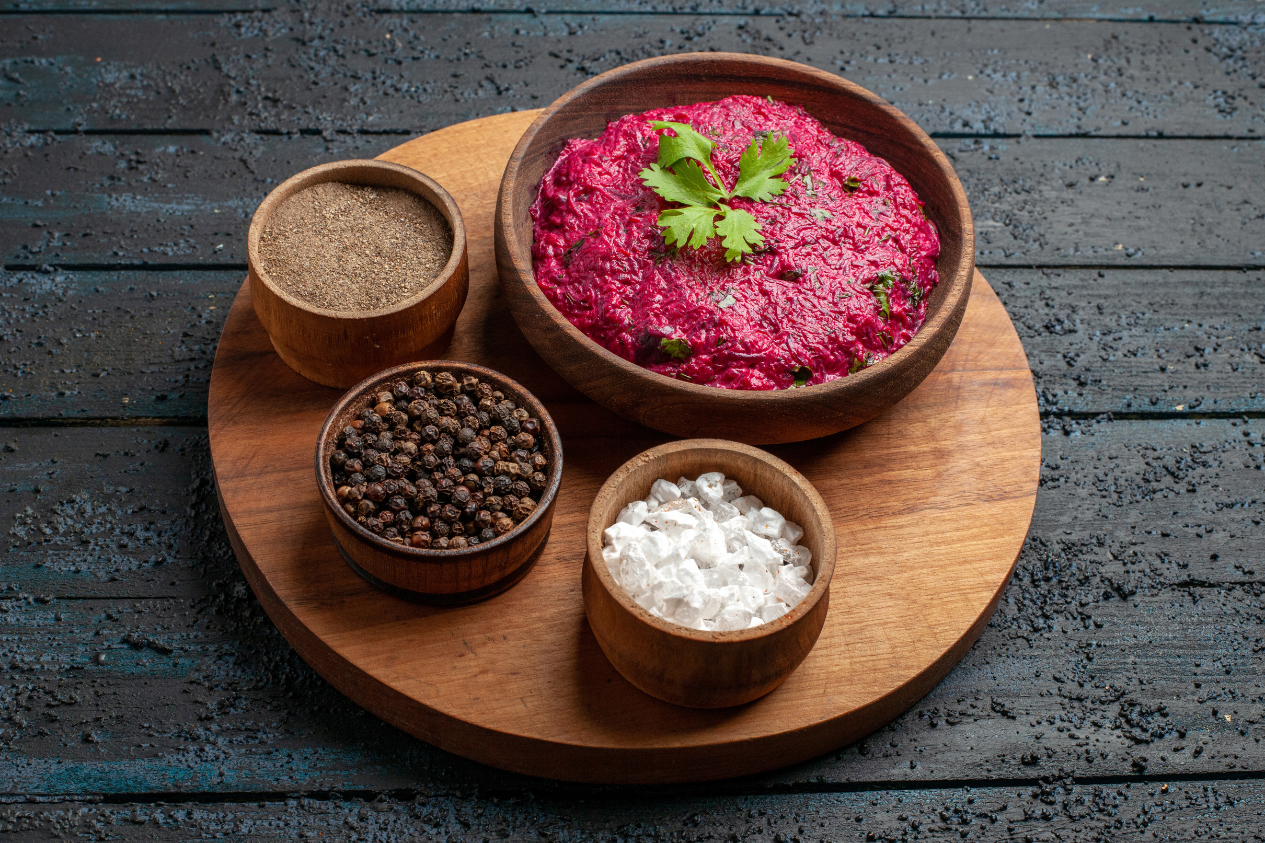
Fermented Indian Foods That Heal After Heavy Eating
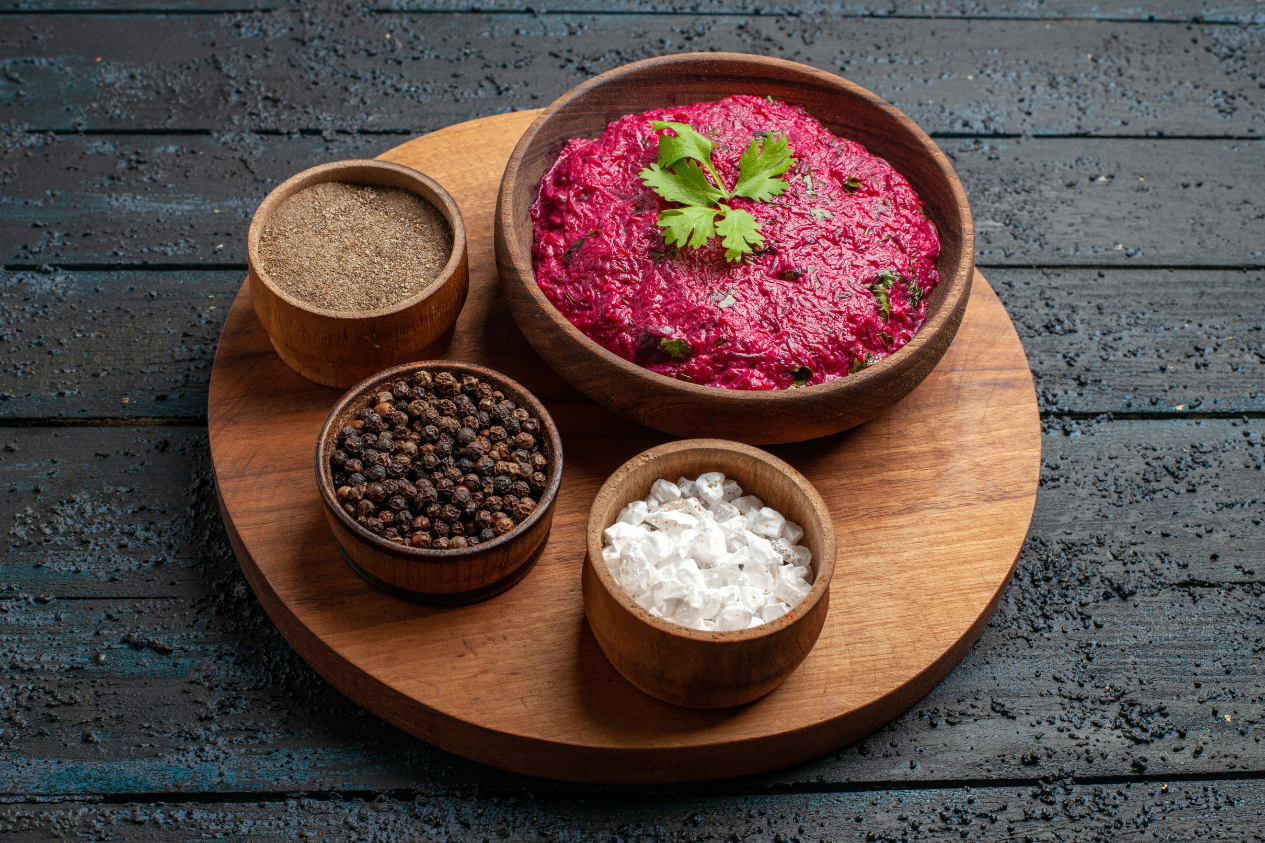
Festivals, weddings or even just gluttonous weekends leave us with that familiar lethargy - bloating, sluggishness and indigestion. This is where fermented Indian foods can help as nature's medicine for whatever ails us. They are time-tested Indian foods with probiotics, enzymes and gut-friendly bacteria that help get us back to baseline after overindulging.
From idlis to kanji, fermented Indian foods have always saved us from ourselves. And now, today's nutritionists recognise what our grandmothers knew all along - fermented foods facilitate digestion, detoxify, and empower healing.
So let's celebrate those familiar fermented Indian foods, with additional recipes that can be replicated at home.
1. Idli – The Gentle Start for a Weary Stomach
Idli is often considered the lightest and most digestible of South Indian delicacies. Made from fermented rice and urad dal, idli is steamed rather than fried, making it perfect after indulgent meals.
Ingredients for Idlis
- 2 cups parboiled rice
- 1 cup urad dal (split black gram)
- ½ tsp fenugreek seeds
- Salt to taste
Method for Idlis
- To prepare idlis, soak rice and dal separately for 6–8 hours. Add fenugreek seeds to the dal.
- Grind both into smooth batters, then mix.
- Allow the idli batter to ferment overnight in a warm place.
- Add salt, pour into greased idli moulds, and steam for 10–12 minutes.
- Pro Tip: Always allow the idli batter to ferment naturally. The lactic acid bacteria developed in the process make idlis easy to digest.
2. Dhokla – A Spongy Fermented Snack That Heals
If your stomach craves something light yet tangy, dhokla is the ideal fermented snack. The fermentation of chickpea flour enhances flavour and boosts probiotics.
Ingredients for Dhokla
- 1 cup besan (chickpea flour)
- ½ cup sour yoghurt
- ½ tsp turmeric
- 1 tsp ginger-green chilli paste
- 1 tsp Eno fruit salt (added just before steaming)
- Salt to taste
Tempering for Dhokla: Mustard seeds, curry leaves, green chillies, and sesame seeds.
Method for Dhokla
- Mix besan, yoghurt, turmeric, chilli paste, and salt to form a smooth dhokla batter. Let it rest 4–5 hours for fermentation.
- Just before steaming, stir in Eno fruit salt.
- Steam the dhokla batter for 15 minutes until spongy.
- Temper with mustard seeds, curry leaves, and sesame, then drizzle over the dhokla.
- Pro Tip: Natural fermentation of dhokla batter provides more gut-healing probiotics compared to instant versions.
3. Kanji – A Probiotic Drink in a Glass
After heavy meals, a glass of kanji works like medicine. This tangy drink made from carrots or beetroots is one of the oldest fermented Indian foods.
Ingredients for Kanji
- 1 medium beetroot (peeled and sliced)
- 2 carrots (peeled and sliced)
- 6 cups water
- 2 tbsp mustard seeds (ground)
- 1 tsp red chilli powder
- Salt to taste
Method for Kanji
- To prepare kanji, mix beetroot, carrots, ground mustard seeds, chilli powder, and salt with water in a glass jar.
- Cover with a muslin cloth and leave in sunlight for 3–4 days to ferment.
- Once the kanji develops a tangy flavour, refrigerate and serve chilled.
- Pro Tip: Drink kanji in small amounts post-feast to flush toxins and restore gut flora.
4. Fermented Rice – The Forgotten Healer
In many Indian households, especially in the South and East, fermented rice or pazhaya sadam is a traditional probiotic breakfast.
Ingredients for Fermented Rice
- 1 cup cooked rice
- 1½ cups water
- 1 tbsp curd (optional starter)
- Salt and green chilli for flavour
Method for Fermented Rice
- Soak leftover rice in water overnight at room temperature to make fermented rice.
- Next morning, mash lightly, add salt and green chilli, and eat with raw onions or pickle.
- Pro Tip: Eating fermented rice after heavy meals reduces bloating and cools the stomach naturally.
5. Appam – South India’s Gentle Pancake
Appam, a lacy pancake from Kerala, is made with rice batter fermented with toddy or yeast. Light and gluten-free, appam is ideal for digestion.
Ingredients for Appam
- 2 cups raw rice
- ½ cup cooked rice
- ½ cup grated coconut
- ½ tsp yeast (or toddy if available)
- 1 tsp sugar
- Salt to taste
Method for Appam
- Grind raw rice, cooked rice, and coconut into a smooth paste to prepare appam batter.
- Add yeast or toddy and ferment overnight.
- Pour batter into an appam pan, swirl, and cook until the appam is soft in the centre and crisp on the edges.
- Pro Tip: Appam is naturally light and a great post-feast fermented dish.
6. Pickles – Tangy Fermented Condiments
Traditional Indian pickles like mango, garlic, or lemon are naturally fermented and packed with probiotics.
Ingredients for Lemon Pickle
- 10 lemons (cut into wedges)
- 2 tbsp salt
- 2 tsp turmeric powder
- 1 tbsp chilli powder
- 1 tbsp roasted fenugreek powder
Method for Lemon Pickle
- Mix lemon wedges with salt and turmeric to start fermenting the lemon pickle.
- Store in a glass jar in sunlight for 2–3 weeks.
- Add chilli powder and fenugreek powder, then mix thoroughly before consuming the lemon pickle.
- Pro Tip: Always use dry spoons when handling fermented lemon pickle to avoid spoilage.
7. Dosa – The Comforting Fermented Crepe
Like idlis, dosa is a South Indian fermented staple that’s light yet satisfying.
Ingredients for Dosa
- 3 cups raw rice
- 1 cup urad dal
- ½ tsp fenugreek seeds
- Salt to taste
Method for Dosa
- Soak rice and dal separately with fenugreek to prepare dosa batter.
- Grind to a smooth paste and ferment overnight.
- Spread thinly on a hot tawa, drizzle oil, and cook until crisp to make dosa.
- Pro Tip: For post-feast meals, stick to plain dosa with chutney instead of heavy masala fillings.
8. Raabdi – A Fermented Bajra Drink
Unlike the sweet dessert, this traditional raabdi from Gujarat and Rajasthan is fermented with buttermilk and bajra flour, making it a warming digestive drink.
Ingredients for Raabdi
- 3 tbsp bajra flour
- 2 cups buttermilk
- ½ tsp cumin seeds
- ½ tsp ghee
- Salt and pepper to taste
Method for Raabdi
- Mix bajra flour with buttermilk and ferment 6–8 hours to prepare raabdi.
- Heat the ghee, add the cumin seeds, then stir in the fermented mixture.
- Cook until slightly thickened and enjoy warm raabdi.
- Pro Tip: Raabdi is nourishing yet light, making it a healing fermented drink after indulgent meals.
Join the Fermentation Conversation with Foodism
Did you love learning about the healing nature of fermentation? If you are, then download Foodism to find more recipes, connect and share with passionate fooders like yourself.
A platform where food traditions and modern conversations collide!!!
Related Blogs

Fusion Thanksgiving: India-Inspired Global Feast
73 Views
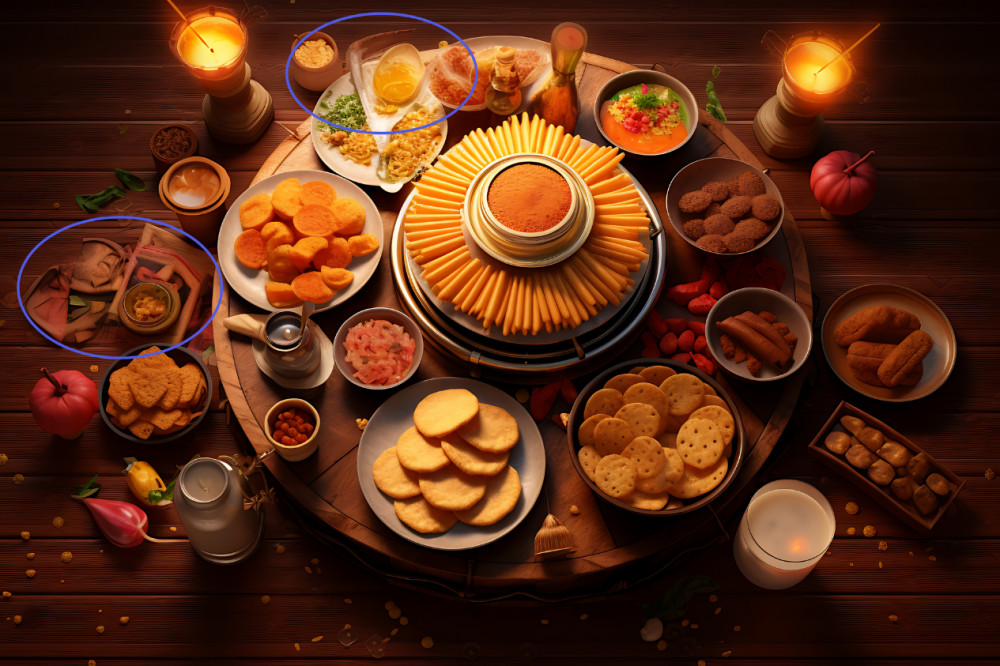
Food Offerings and Festive Plates of Kartik Purnima
168 Views
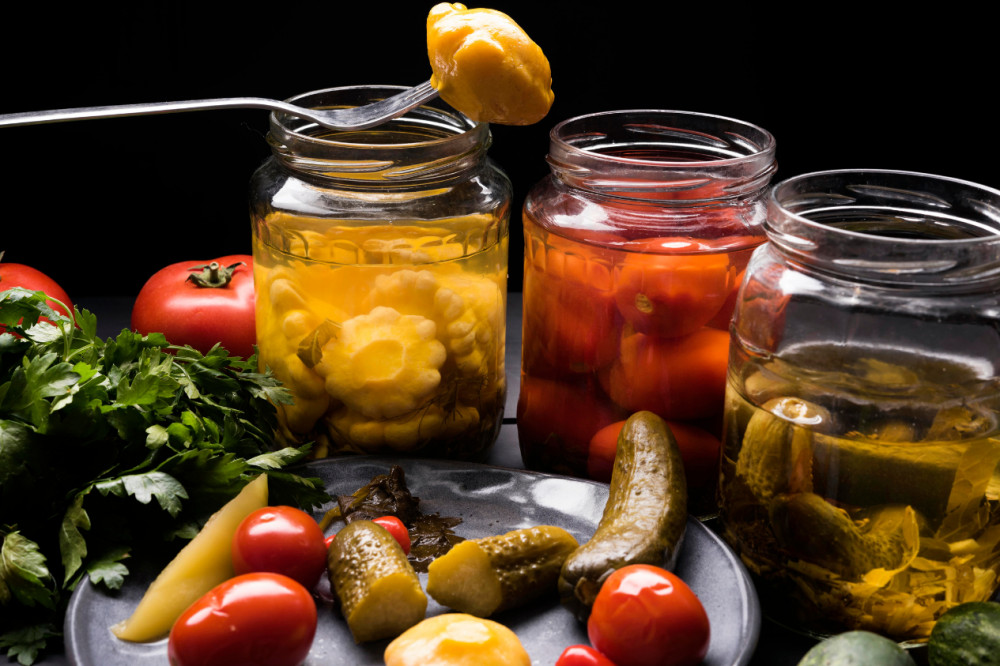
The Science of Ferment: Easy Homemade Fermented Foods
127 Views
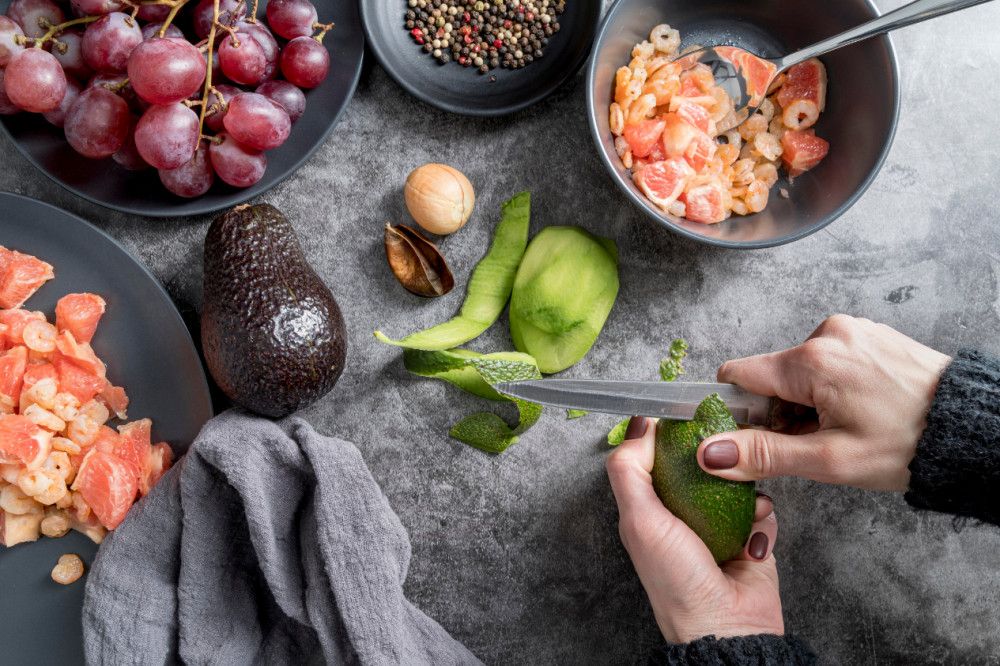
Zero-Waste Cooking: 7 Dishes That Use Every Bit
128 Views
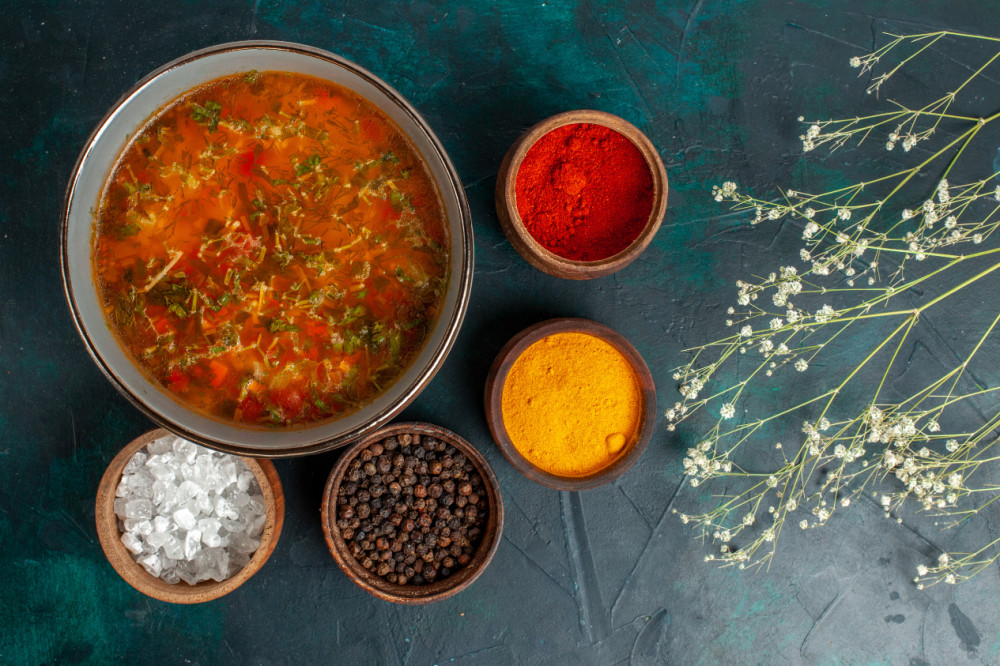
Warm Spices, Cold Valleys: Comfort Food from Kashmir
169 Views